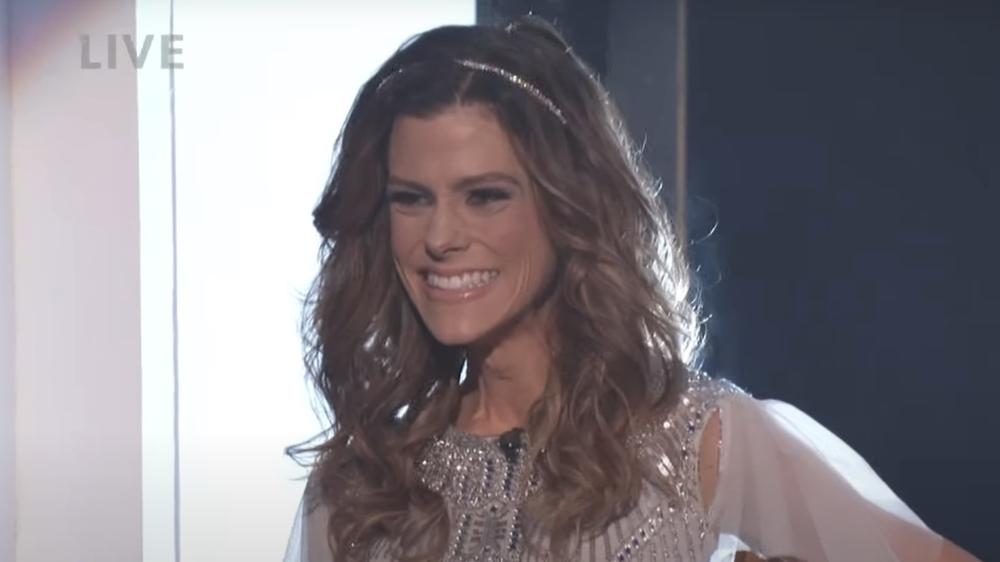Fit for TV: The Reality of the Biggest Loser has landed on Netflix, revisiting the infamous 2000s reality series and the controversy surrounding Season 15 winner Rachel Frederickson. Warning: some may find this content distressing.
In the big age of 2025, it’s easy to forget how massive The Biggest Loser really was – in spite of its troubling premise. Kicking off in 2004, the NBC show saw a group of contestants competing to win a cash prize by losing the highest percentage of weight relative to their starting point.
As controversial as it was, it ran for 17 seasons, making stars out of its winners and trainers Jillian Michaels and Tom Harper, while spawning a multi-million dollar franchise involving spinoffs, books, workout DVDs, and food products.
But as is explored in the three-part Netflix docu-series, behind the scenes, participants’ wellbeing was often low on the list of priorities. And even the crew who stood by their actions were left shocked by Frederickson’s transformation.
What happened to Rachel Frederickson?
Rachel Frederickson won The Biggest Loser Season 15 in 2014 after losing a staggering 155 pounds, dropping from 260 pounds to just 105, meaning she’d shed nearly 60% of her body weight over the course of the competition.
When she stepped on stage at the finale, viewers, fellow contestants, and even the show’s trainers appeared visibly stunned.
Many felt she looked dangerously thin, sparking headlines, social media debates, and accusations that the show’s extreme methods encouraged unhealthy weight loss and even eating disorders.
Let’s make this clear: in no way was Frederickson to blame. It doesn’t take a genius to figure out that making weight loss a competition is a dangerous game – especially when the cash prize is $250,000.
As is revealed in Fit for TV: The Reality of the Biggest Loser, she was one of many participants who fought to lose the most weight, with others sharing stories of extreme fasting, training until they vomited, and one woman – Tracey Yukich – coming close to death after a challenge.
When it came to Frederickson, The Biggest Loser producers insisted she had followed the program’s rules, but critics argued that the transformation was a glaring example of the risks posed by the TV show.
While Frederickson defended her health at the time, the controversy became one of the defining moments in the show’s history.
Jillian Michaels, one of the trainers whose controversial methods raised eyebrows, later admitted that she “profited off of a platform” that allowed Frederickson’s drastic weight loss to happen, which is when she decided it was time to leave.
Executive producer David Broome says in the new docu-series, “I’m not going to sit here and say that The Biggest Loser was perfect or that The Biggest Loser didn’t make mistakes. But we did everything we could to stay on top of their progress.”
However, when past contestants reached out to the producers and asked for a simple aftercare package such as therapy and gym memberships, they were all shut down.
Despite their millions of dollars, Broome insists, “Certainly, we would love to have had aftercare. But we’re a television show with a television show production, you know, without endless pots of money.”
Where The Biggest Loser winner is now
As for where Rachel Frederickson is now, according to her LinkedIn profile, she’s still in her home town of Saint Paul, Minnesota, where she’s carved a successful career for herself as an analytics manager for an agricultural company.
Frederickson chooses to maintain a low profile, having set her Instagram account to private. She did, however, give interviews after the show’s finale, saying she’d found balance in maintaining a healthy lifestyle.
Speaking to US Weekly, she revealed, “I’ve gone up about 20 pounds. I think I’m at my perfect weight! I work out an hour, six days a week. I love classes like SoulCycle. I also loosely count calories, but sometimes I might eat an Oreo. It’s not the end of the world.”
In an essay for Today, also penned in 2014 after the finale, Frederickson spoke about the self-esteem issues she’d experienced in the past and how strong she’d felt as the winner of The Biggest Loser.
“That moment didn’t last long. Comments during the controversial storm following my weight loss were hurtful,” she wrote.
“My self-esteem once again was affected by other people’s voices – this time, the kind that live forever in Facebook posts or written in the pages of magazines. People tried to bring me down and (privately) succeeded.”
She added that she’d spent the year learning, including taking college classes, working in voice-over, walking dogs at the local shelter, training for her first marathon, and landing a dream career.

 MrBeast reveals whopping sum he spends on security each month
MrBeast reveals whopping sum he spends on security each month